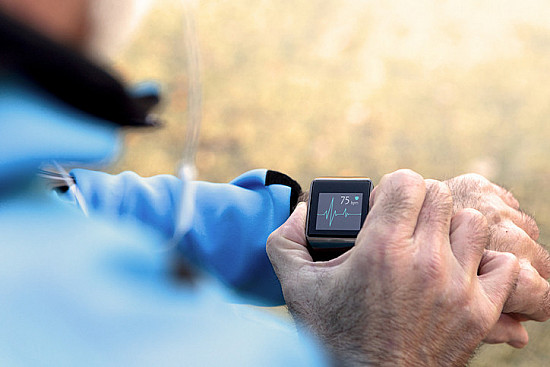
New thinking about plaque in arteries that feed the brain

Want to prevent shifting teeth? Maybe you need retainers

What you need to know about the new dietary guidelines

Food that’s healthier for people and planet can be cheaper, too

New evidence that polyphenol-rich foods help the heart

8 simple ways to reduce ultra-processed foods in your diet

How to curb your stress eating

How to spot Parkinson’s disease symptoms

Heart failure symptoms in women: How they’re different

GERD diet: Foods to avoid to reduce acid reflux
Cardiac arrest
Cardiac arrest occurs when the heart suddenly stops pumping.
The heart is a fist-sized organ. It has four chambers, each with walls of muscle. Each chamber contracts when it gets an electrical signal to do so. These contractions push blood into the next chamber or out to the body.
Cardiac arrest is usually caused by an irregular heartbeat, also known as an arrhythmia. Most of the time a cardiac arrest occurs when the heart's lower chambers (the ventricles) beat too rapidly. Without enough time to relax between beats, they can't fill with blood and so can't pump enough blood to sustain life. Sometimes cardiac arrest occurs when the upper chambers (the atria) beat too rapidly to pump blood efficiently.
Irregular heartbeats are usually caused by coronary artery disease, the development of cholesterol-clogged arteries in the heart. Other causes include viral infections of the heart muscle; electric shock; certain inherited disorders; and drinking too much alcohol. Cocaine and other drugs can also trigger cardiac arrest by causing the coronary arteries to clamp shut, depriving the heart muscle of oxygen.
Symptoms of cardiac arrest
Fainting is usually the first sign of cardiac arrest. A person may feel dizzy or lightheaded just before fainting.
Some people may experience chest pain, shortness of breath, or nausea shortly before going into cardiac arrest.
A person in cardiac arrest has no heartbeat and no pulse.
Diagnosing cardiac arrest
Cardiac arrest is an emergency. It is crucial to get the heart beating again as quickly as possible. Diagnostic tests are not done until after a person's heart is beating again.
If the person is revived, tests may be done later to identify what caused the cardiac arrest. These tests provide information about the structure and function of the heart. They may record the heart's electrical activity, identify the presence of arrhythmias, show evidence of damage to the heart muscle, and reveal how well the heart is pumping blood.
Tests that may be done include:
- electrocardiogram (EKG)
- echocardiography
- cardiac magnetic resonance imaging (MRI)
- cardiac catheterization
- electrophysiology study
- blood tests
Treating cardiac arrest
Cardiac arrest is an emergency. A person who is in cardiac arrest will die within minutes unless his or her heartbeat is restored.
Call 9-1-1 right away if you think someone may be in cardiac arrest. Be prepared to perform cardiopulmonary resuscitation (CPR) until emergency personnel arrive. All 911 operators are trained to give verbal cues for CPR. You can put your phone on speaker and ask the operator to talk you through the steps.
Here are the basic steps of doing CPR on someone in cardiac arrest.
- Place the heel of one hand on the person's breastbone, and put your other hand over it.
- Push down on the breastbone with both hands hard enough to make the breastbone move downward.
- Relax to let the breastbone move back up.
- Repeat.
- Aim to do 100 presses a minute.
Doing CPR can be the difference between life and death. It keeps blood circulating until the person’s heart can be shocked back into a normal rhythm with an automated external defibrillator (AED).
Many public areas have AEDs, which use voice prompts, lights, and text messages to guide users — even those who haven't been trained to use the device — through the steps.
People who survive cardiac arrest often have an implantable cardioverter defibrillator (ICD) surgically placed under their skin. This device uses electrical shocks to correct dangerous arrythmias. Medicines are also given to help prevent an irregular heartbeat.
Disclaimer:
As a service to our readers, Harvard Health Publishing provides access to our library of archived content. Please note the date of last review or update on all articles.
No content on this site, regardless of date, should ever be used as a substitute for direct medical advice from your doctor or other qualified clinician.

New thinking about plaque in arteries that feed the brain

Want to prevent shifting teeth? Maybe you need retainers

What you need to know about the new dietary guidelines

Food that’s healthier for people and planet can be cheaper, too

New evidence that polyphenol-rich foods help the heart

8 simple ways to reduce ultra-processed foods in your diet

How to curb your stress eating

How to spot Parkinson’s disease symptoms

Heart failure symptoms in women: How they’re different

GERD diet: Foods to avoid to reduce acid reflux
Free Healthbeat Signup
Get the latest in health news delivered to your inbox!
Sign Up




